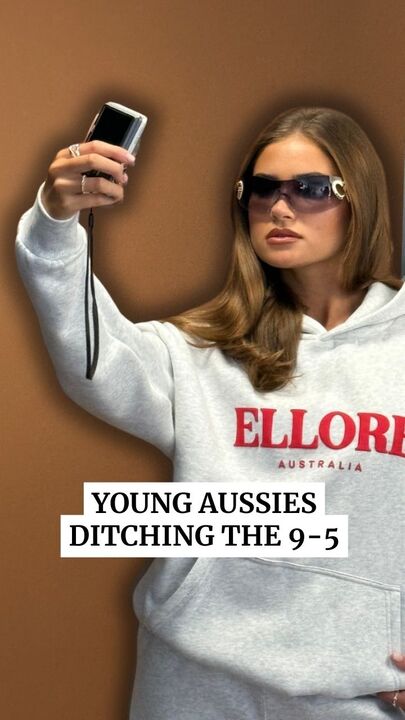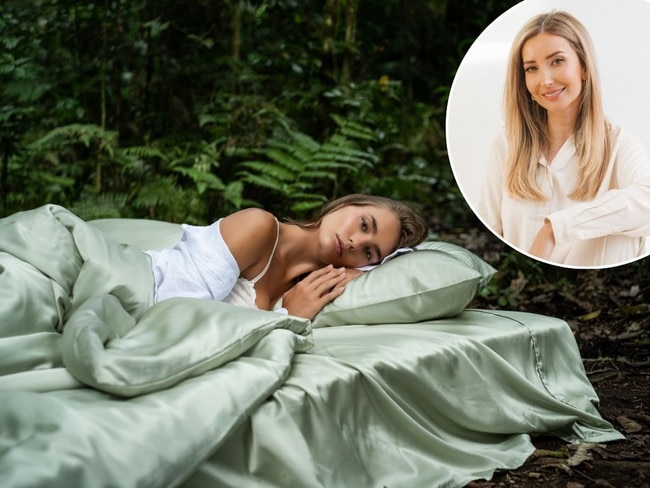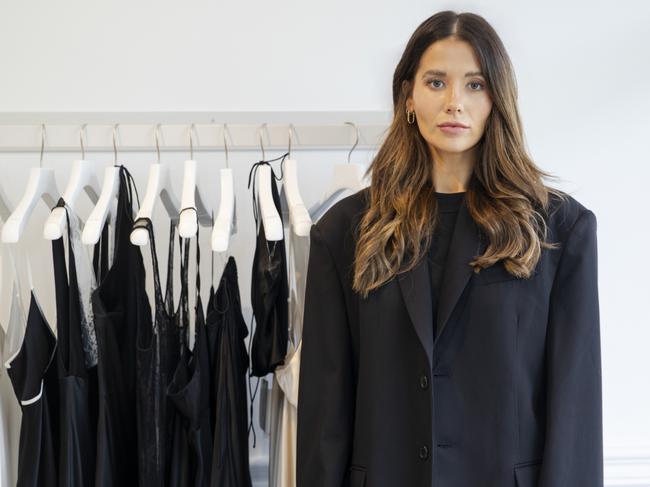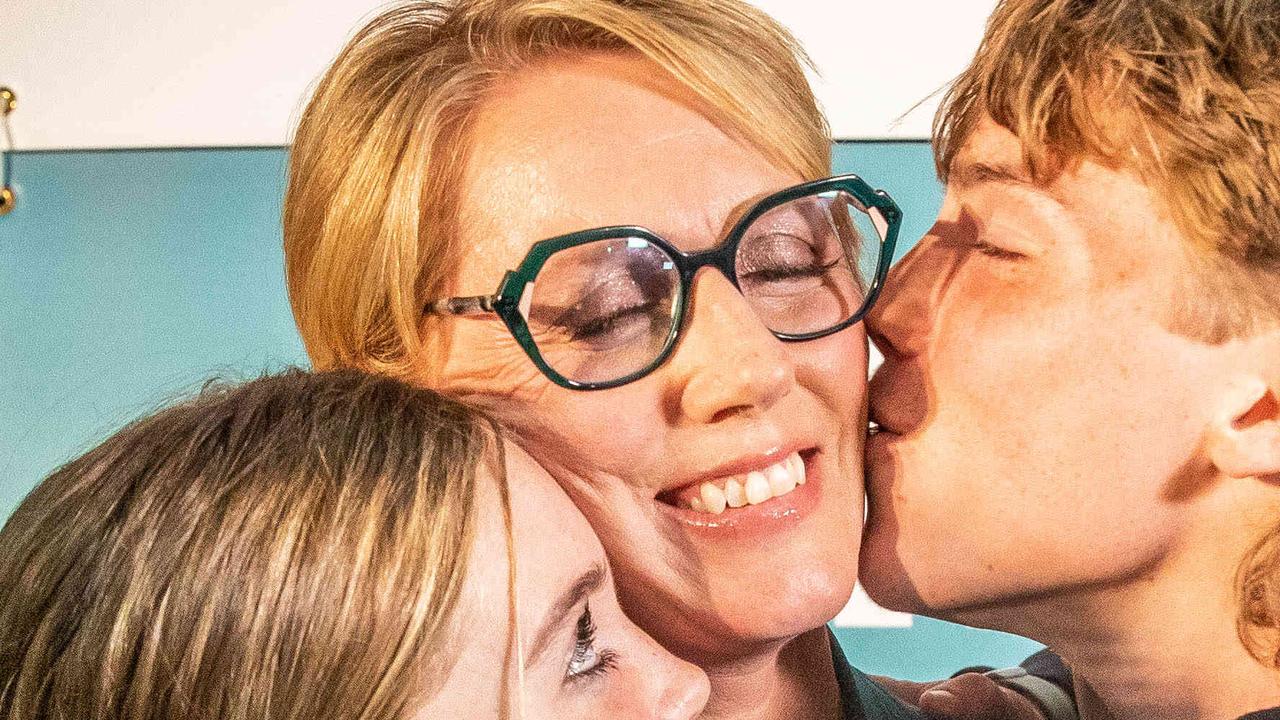Why a record number of Aussies are ditching the 9-to-5 grind
Side hustles, start-ups, and passion projects are fast replacing traditional career paths as a record number of Australians are ditching the 9-to-5 grind by choice.

National
Don't miss out on the headlines from National. Followed categories will be added to My News.
A record number of Australians are ditching the 9-to-5 grind — for high-paying side hustles, start-ups, and passion projects.
The latest Australian Bureau of Statistics data reveals that nearly one in 10 Australians changed jobs in the past year, marking the highest rate in over a decade.
Additionally, job site Indeed reports that 5.5 million Aussies are likely to leave their jobs this year.
Experts describe this trend not as a wave of quitters, but as a quiet exodus of builders.
Dr Chedia Dhaoui from UNSW Business School attributes this shift to changing priorities, a post-Covid perspective, and a growing desire for autonomy.
“The pandemic prompted many to pause and reflect, leading to a ‘great rethink’ about work-life balance and personal fulfilment,” she said. “This is a lasting cultural shift in how Australians view work and success.”
“Younger Australians are more likely to prioritise their passion-led careers.
“Many of them aspire to be their own boss and build full-time online ventures.”

Social media platforms like TikTok, Instagram, and YouTube have accelerated this shift, serving as launch pads and income streams for creators turning passions into thriving businesses. TikTok alone contributed $1.1 billion to the Australian economy last financial year.
Data from Employment Hero shows that founders and owner-operators earn two to three times more than the average Australian worker.
According to Ellis Taylor, director at recruitment consultancy Real Time, this trend is driven by generational shifts and structural changes due to AI’s impact on company teams.
“Gen Z’s are motivated by impact, flexibility and rapid growth, with career acceleration often looking like changing roles every one to two years,” he said.
“For them, work is no longer a ‘job for life’; it’s a portfolio of experiences.”
Here are some success stories.
WINE O’CLOCK
During the pandemic, Kelsie Gaffey left her corporate marketing job to open Gracie’s Wine Room in Melbourne’s South Yarra.
“I wanted to create a wine bar that my friends and I would love to visit, a place to laugh, cry, and have a great time,” Ms Gaffey, originally from Adelaide, said.
She waited until she signed the lease on the commercial property before quitting.

Ms Gaffey documented her journey on TikTok, sharing the process with her followers.
“I had no idea what I was doing,” she admitted, posting unfiltered, real-time snippets. Social media became her support network, influencing everything from wine lists to light fittings before the bar even opened.
Despite the challenges, including not taking a wage during the setup, Ms Gaffey believes the risk was worthwhile.
“Life is too short to be stuck in a job you hate,” she said.
LOUNGING AROUND
Ebany McLees and Olivia O’Neill launched their loungewear brand, Ellore, without a business degree or investors — just a big idea, late nights, and the courage to quit their jobs.
Based in Melbourne and Brisbane, the co-founders were advancing in the corporate world when their side hustle gained momentum. “While our backgrounds were corporate, we always had that entrepreneurial drive, which eventually led us to take the leap with Ellore,” Ms McLees said.

After 18 months of dedication, they decided to go all in.
“We had built something from nothing and now it was strong enough to support us,” Ms McLees said.
Now, Ellore is a seven-figure business, one of the few brands entirely manufactured in Australia, with more than two million sales and 167,000 TikTok followers.
However, success wasn’t instant.
“One of the biggest challenges was going from structured corporate roles to running a business with no road map,” Ms O’Neill said. “When we started Ellore, we had no idea where it would take us.
“There’s a huge shift happening, people are realising they don’t have to follow the traditional 9-5 path.”
SWEET DREAMS
Michelle Tweedle didn’t just start a sleep brand — she invented the material that defines it.
Struggling with chronic insomnia, Ms Tweedle explored how body temperature impacts sleep quality. Her research led to the creation of a mint-infused fabric, the cornerstone of her eco-luxury bedding brand, Mynt Lab, which is “naturally cooling, breathable, and easy to care for.”

The 34-year-old founder’s journey to entrepreneurship was anything but linear.
“I’ve worked in real estate, nutrition, and spent a few years in operations. Most recently, I was working in corporate as an events co-ordinator,” she shared.
It was during the Covid lockdowns, when she realised she wanted more meaningful work.
“I continued working in my corporate role for the first two years of building my business so I could support it financially,” she said.
“It got to a point where I felt I could grow the business more by dedicating 100 per cent of my focus to it, rather than juggling both.”
SWIMWEAR NICHE
At 30, Louise Chen had achieved what many consider success — a stable job and a respectable career as a lawyer in Perth. However, in 2023, she decided to leave it all behind. “I was interested in law and enjoyed it, but I was never truly passionate about it … I always aspired to work for myself one day,” Ms Chen said.

That aspiration materialised with the creation of LOU Swim, her swimwear label catering to women with smaller chests — a niche she felt was underserviced.
Social media played a pivotal role in transforming her side hustle into a six-figure business.
“TikTok allowed me to reach a lot of people … I never knew this was possible without having to spend a fortune on paid advertising,” she said.
“My videos went viral before I even launched … and that incredible awareness converted into sales.
“My advice is to focus on building a brand, not just a product.”
MODERN VINTAGE
Olivia Koennecke, 31, is the founder and creative director of Maison Essentiele, a womenswear label blending vintage and modern styles.
Before launching her brand, Ms Koennecke spent a decade in retail, PR, and marketing.

“That time gave me both a deep respect for the industry and the confidence to do things differently,” Ms Koennecke, of Sydney, said.
Her transition into entrepreneurship was largely driven by social media.
“TikTok, for me, (is) … a way to document the messy, beautiful process of building something from scratch,” she said.
“I started the brand five years ago, and like most start-ups, it began small — late nights, small orders, packing boxes myself,” she said.
Her TikTok community, known as #MAISONgirls, is a key part of the brand’s identity.
“Flexibility, creativity, and autonomy aren’t luxuries anymore, they’re necessities,” she said. “We don’t need huge budgets, we just need to show up honestly and consistently.”





